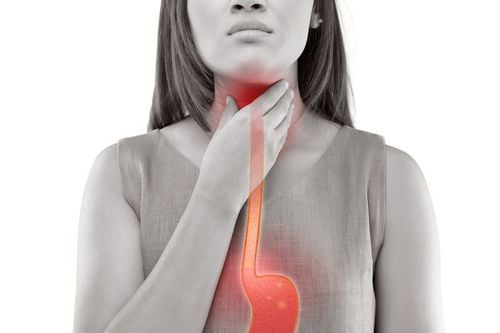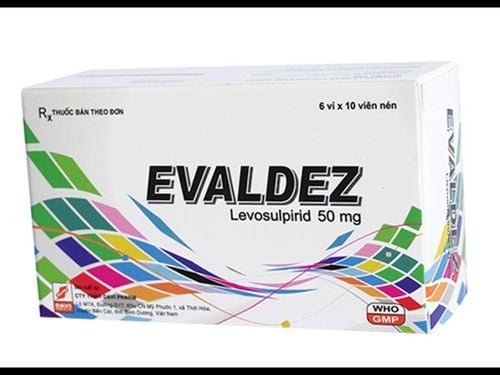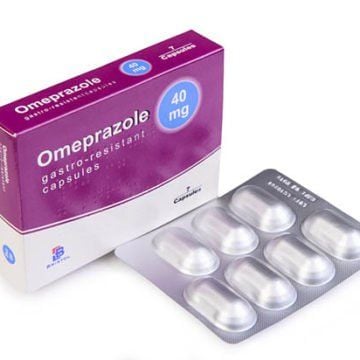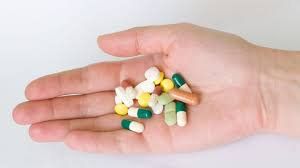This is an automatically translated article.
Posted by Master, Doctor Mai Vien Phuong - Department of Examination & Internal Medicine - Vinmec Central Park International General Hospital1. Sour, Acid Reflux and GERD
The terms heartburn, acid reflux, and GERD are often used interchangeably. They actually have very different meanings.
Acid reflux is a common medical condition that can range from mild to severe. Gastroesophageal reflux disease (GERD) is a more severe, chronic form of acid reflux. Heartburn is a symptom of acid reflux and GERD.
2. What is heartburn?
The term "heartburn (heartburn)" is misleading. “The heart really has nothing to do with pain.” Heartburn occurs in your digestive system. Specifically in your esophagus. Heartburn includes mild to severe pain in the chest. It is sometimes mistaken for the pain of a heart attack.
The lining of the esophagus is thinner than the lining of the stomach. So the acid in your esophagus causes a burning sensation in your chest. The pain may feel sharp, burning, or like a tightening sensation. Some people may describe heartburn as a burning sensation moving up the neck and throat or an uncomfortable feeling like it's behind the breastbone.
Heartburn usually occurs after eating. Leaning over or lying down can make the feeling worse.
Heartburn is quite common. It is estimated that more than 60 million Americans experience heartburn at least once a month. You can control your heartburn by:
Losing weight Stop smoking Eat less fatty foods Avoid spicy or acidic foods Mild, occasional heat can also be treated with medications such as medications acid resistance. If you take antacids more than a few times a week, your doctor will evaluate you. Your heartburn could be a symptom of a more serious problem like acid reflux or GERD.

3. What is acid reflux?
A sphincter called the lower esophageal sphincter (lower esophageal sphincter) joins your esophagus and stomach. This muscle is responsible for tightening your esophagus after food reaches the stomach. If this muscle is weak or not tight, acid from the stomach can back up into the esophagus. This is called acid reflux.
Acid reflux can cause heartburn and other symptoms including:
Cough Sore throat Bitter taste in the back of the throat Sour taste in the mouth Causes a burning and pressing sensation that can extend up the breastbone
4. What is GERD?
GERD is a chronic form of acid reflux. It is diagnosed when acid reflux occurs more than twice a week or causes esophagitis. Long-term damage to the esophagus can lead to cancer. Pain from GERD may or may not be relieved by taking antacids or other over-the-counter (OTC) medications.
Symptoms of GERD include:
Bad breath Damage to tooth enamel due to excess acid Heartburn Feeling like stomach contents back up into throat or mouth, or reflux Chest pain Persistent dry cough Asthma Difficulty swallowing Most people can experience ongoing heartburn and acid reflux related to something they've eaten or habits like lying down right after eating. However, GERD is a chronic condition where doctors begin to examine a person's long-term habits and anatomical parts that may be causing GERD. Examples of causes of GERD include:
Being overweight or obese, which puts extra pressure on the stomach Intermittent hernia, which reduces pressure in the lower esophageal sphincter Smoking Drinking Alcohol Pregnancy Taking medications prescribed known to weaken the lower esophageal sphincter, such as antihistamines, calcium channel blockers, pain relievers, sedatives, and antidepressants
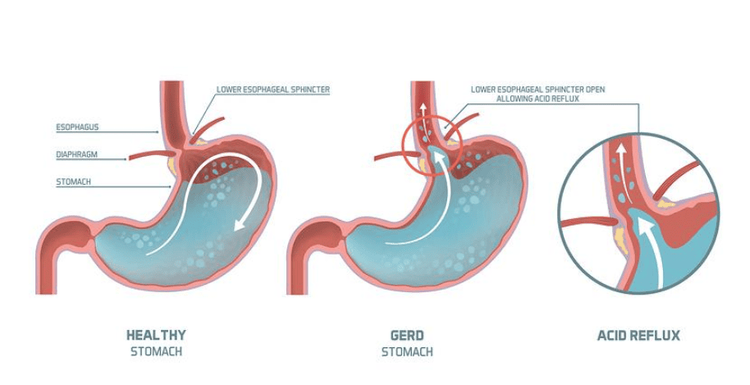
Symptoms of GERD can disrupt your daily life. Fortunately, they can often be controlled with treatment. Options include:
Change in diet Weight loss Quitting smoking Quitting alcohol Medications for GERD work to reduce the amount of acid in the stomach. They may not work for everyone. Some people need surgery to help strengthen the lower esophageal sphincter.
GERD in children
From infants to teenagers, children of all ages can have GERD. About a quarter of all children and adolescents experience symptoms of GERD. This condition is especially common in babies because their stomachs are much smaller and less able to bear it. As a result, the contents of the stomach can be easily regurgitated.
Symptoms associated with GERD in infants include:
Particularly irritable or irritable after feeding Choking Vomiting forcefully, especially after burping Crying, especially after giving eating Not gaining weight at a normal rate Refuses to eat Vomiting Wheezing Shortness of breath About 70-85% of babies spit up in the first two months of life. Typically, 95 percent will be free of symptoms by the time a child is 1 year old. Children with developmental and neurological conditions, such as cerebral palsy, may have reflux and GERD for longer periods of time. It is important for doctors to diagnose GERD in children early to reduce the chance of complications.
As children, they may still experience symptoms of GERD. Symptoms include:
Bad breath Chest discomfort Frequent respiratory infections Heartburn Hoarse voice Abdominal discomfort Talk to your child's pediatrician if you think your child is experiencing GERD. Untreated symptoms can cause permanent esophageal damage

5. When to Call Your Doctor
The symptoms of heartburn are often confused with a heart attack, but the two conditions are not related. You should go to the emergency room right away if your uncomfortable heartburn and chest pain change or get worse and are accompanied by:
Shortness of breath Sweating Dizziness Pain in your arm or jaw These symptoms may be a symptom of a heart attack (myocardial infarction), which requires urgent emergency intervention.
Sometimes GERD symptoms can indicate the need for urgent medical treatment. These include:
Frequent, forceful vomiting Difficulty breathing Difficulty swallowing Vomiting of bright red bloody liquid or coffee-like substance Not all heartburn requires medical attention. Mild and infrequent heartburn can be treated with antacids and lifestyle changes, like avoiding spicy foods. Occasional reflux is not a cause for concern. You should consult your doctor if you experience heartburn twice or more a week or if over-the-counter medications do not relieve your discomfort.
Department of Endoscopy - Gastroenterology is one of the key specialties at Vinmec International General Hospital. For timely examination, advice and treatment of digestive diseases, you can contact Vinmec Health System nationwide or register online on the website for service.
Please dial HOTLINE for more information or register for an appointment HERE. Download MyVinmec app to make appointments faster and to manage your bookings easily.






